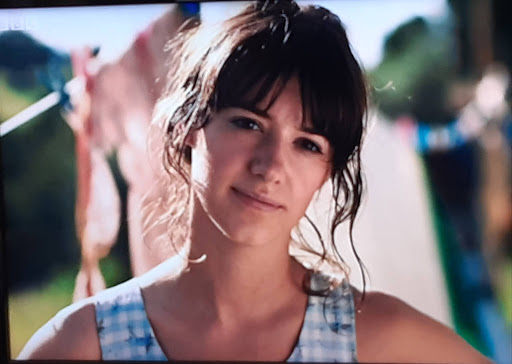“Daisy, Daisy, give me your answer do”
Tom sang this song every time he washed his hands.
“I'm half crazy, all for the love of you"
He'd timed himself and established that one verse took twenty seconds.
“It won't be a stylish marriage, I can't afford a carriage”
It was much preferable to rasping out a couple of verses of 'Happy Birthday'.
“But you'll look sweet upon the seat of a bicycle made for two”
Daisy had died three years ago – they had been married for 58 years.With no Daisy and no family, Tom found birthdays to be no different to any other day – apart perhaps from the nagging reminder that time is running out. Once lockdown restrictions were eased he made a point of walking into the village each morning to buy groceries and a paper. What would Daisy have thought about this mask wearing business? He was sure that she would have found it all rather sinister.
The sheltered housing where he now lived had a communal lounge where he joined a Bridge group once a week. The pandemic had demanded that they implement a degree of social distancing. They gave it some thought and concluded that they were fine as they were (well, the elderly can be quite stubborn) and Tom removed any feelings of guilt which they might have had by declaring that they were in a 'bubble' – although no one quite knew what that meant.
Feeling somewhat deflated, Tom decided to give the Bridge a miss. Then a pang of guilt. What if they couldn't make a four without him? Feeling a victim of self-induced emotional blackmail he skimmed a brush through his unruly white hair and applied a spray of antiperspirant under each armpit (it was called 'African Ritual' and was 10th prize in the raffle at last year's summer fete in the village) and set off to the communal lounge.
------------------
Sitting at their usual table were the amply shaped Elsie and Vera.
“Ah, hello Tom, we were just going to come and get you”, Vera said with obvious delight. “Did you remember that there is no Bridge tonight? They are organising Bingo at 7:30. Get yourself some tickets and come and join us.”
“Yes, of course I remembered” he replied, fooling no-one (clearly he had forgotten) but now he felt trapped. He could have stayed in and spent a couple of hours with the cryptic crossword (if he solved half a dozen clues he felt very pleased with himself) and the Sudoku (not the 'difficult' one though – quite impossible!) before falling asleep during Newsnight. Too late now!
Elsie turned to wave at someone as Tom was busy paying for his bingo cards. The next moment the whole room started singing.
“Happy Birthday to you”
It took Tom a few moments to realise that he was the victim. Stitched up like a kipper!
“Happy Birthday to you”
Mrs Tyson, the Manageress, appeared with a cake – candles ablaze.
“Happy Birthday dear Thomas”
Nobody called him Thomas any more but in that precise moment he conceded to himself that it definitely worked better for the song - the extra syllable matching the rhythm of the verse. (Fancy having time to consider that during a moment of stress – isn't it strange how the mind works!)
“Happy Birthday to you.”
The cake was placed on the table for Tom to blow out the candles. (Heavens, he thought – it's like being a child again.)
“Hip hip hoorah” chanted the rest of the room.
The large icing digits gave the game away, '88' they announced.
Fortunately there were rather less candles (there were 8 if you needed to know).
I wish I wasn't here, thought Tom as he managed to extinguish the candles with only three slightly wheezy puffs.
With one final “Hip hip hoorah” the excruciating ordeal came to an end. Mrs Tyson then took away the cake which she cut into manageable pieces and served up on paper plates to the whole of the room, as a prelude to the Bingo.
Tom began to relax – the cake wasn't bad and, whilst he didn't normally drink the stuff, the Prosecco that Mrs Tyson brought around went down very well indeed!
“Now Tom, let's play Bingo, and we don't want any jokes about 'two fat ladies'” warned Vera, with a wink to Elsie and a self-congratulatory smile that signalled a job well done.






